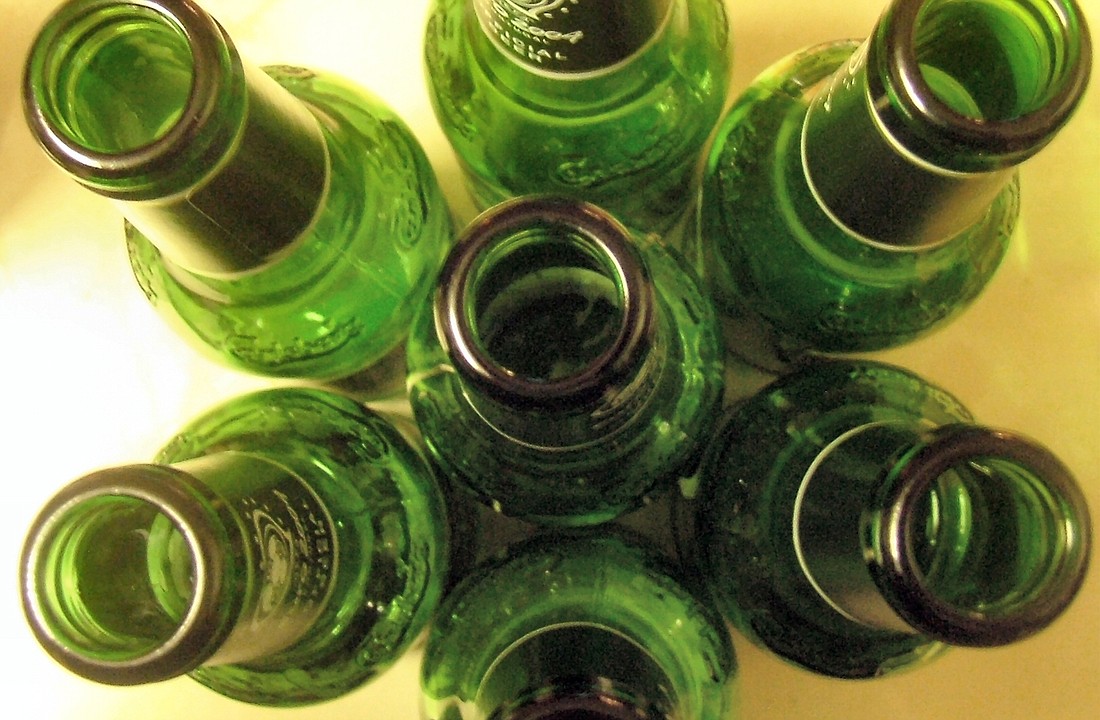- April 24, 2024
-
-
Loading

Loading

Should bottle clubs — facilities like bars, but where patrons bring their own booze and pay to have it served back to them — be allowed in Palm Coast?
The City Council hasn't decided that yet, and the city doesn't have any. But with applicants seeking to build a bottle club in City Marketplace while the neighbors protest and a temporary city moratorium preventing the clubs' construction ticks down toward its end date, the city has to figure it out.
The temporary moratorium runs out April 13. For now, it prevents the city from issuing permits for bottle clubs, on the basis of pending City Council action.
So if the city wants to ban or restrict the clubs, it has to draft its legal language before the April 13 deadline or risk a club getting its permits approved after the moratorium ends but before the city takes action, which would mean the club could be "grandfathered in" under any ordinance the city passed afterward and not have to abide by it.
City staff is wary of bottle clubs. The Sheriff's Office has warned that they're often associated with crime.
Because bottle clubs aren't actually selling booze, they're exempt from many regulations targeting bars. In many places, they stay open longer, so if someone gets out of a bar at 2 a.m. and is still ready for action, they might go to a bottle club that's open until 6 a.m., city staff told City Council members at a council workshop Jan. 12.
The city has closed that particular loophole already: Its regulations would require bottle clubs to close at 2 a.m., like bars.
Still, city staff members cited disturbing statistics: At one bottle club in Volusia County, over a 33-month period, there were 453 emergency calls, including 44 fights and two homicides; at a cluster of three bottle clubs in Hillsborough County, there were 130 calls, including four shootings with one fatality, and 12 cases of battery. The Hillsborough County Sheriff's Office and the Florida Division of Alcoholic Beverages and Tobacco raided two of the Hillsborough clubs and arrested managers for selling alcohol as well as dispensing it.
City Councilman Bill McGuire asked if city staff's presentation on the clubs was too one-sided.
"Are there any counties that have bottle clubs that don’t have any problems? Where they’re good citizens, and businesses that contribute to the economy?" he asked. McGuire said that he was familiar with other states in which bottle clubs had grown out of laws barring the sale of alcohol on Sunday.
"What we’re seeing is that this is a whole different breed of establishment," City Manager Jim Landon replied.
Landon noted that the individuals who've approached the city about starting a bottle club in Palm Coast have been informed of the city's meetings on the issue, and could come and argue their case. So far, they haven't done so, either at the Jan. 12 meeting or other City Council meetings at which the clubs have been discussed.
Councilman Steve Nobile said that since the Nov. 17 meeting when city staff first brought the issue to the council, he's kept an eye on crime stats near the Volusia County bottle clubs, and noticed that actual bars in those areas also have crime problems.
"It seemed more area-specific than business-specific, because I was seeing shootings and robberies and fighting at bars in the same areas that you’re seeing a shooting at a bottle club," he said.
Nobile asked how the city would be able to regulate bottle clubs without also affecting civic clubs where groups might bring their own booze for a celebration. Landon said bottle clubs are defined by state law, and City Attorney Bill Reischmann said the city's definition of bottle clubs specifically exempts social and civic organizations.
As for what to do about bottle clubs, the city has four options, city staff members told the council: It could add bottle clubs to a list of prohibited land uses — like junk yards, puppy mills and asphalt plants — that aren't allowed anywhere in the city; it could allow them in its high-intensity commercial zoning district as a special exception requiring planning board approval; it could allow them in its high-intensity industrial-zoned areas as a special exception requiring planning board approval; or it could allow them in its lower-intensity industrial-zoned areas as a special exception requiring planning board approval.
Of those options, the three which would allow bottle clubs in specific areas of the city would be the trickiest to handle legislatively, Reischmann said, and "would require a lot more time and thinking. … We want to be very careful that if we're going to allow these in Palm Coast, that we have some minimum mandatory regulations to protect other businesses that are located there, was well as deal with the concerns that have been raised as far as the criminal aspect."
Councilwoman Heidi Shipley said she was concerned that any option that places the clubs near existing businesses or homes would lead to complaints. Even the suggestion of such a club moving in already has: The city got a barrage of emails in early November when business owners in City Marketplace sought the city's help after finding out there were plans to put one in that shopping center.
"We’re not recommending that, but we believe the public process needs to have options," Landon replied.
City staff expect to show the City Council some draft regulations on bottle clubs at a Feb. 23 council workshop. The City Council will then discuss the proposed regulations again at a later date in a public hearing (when public comment will be allowed), and hold a council vote on whether to enact them.